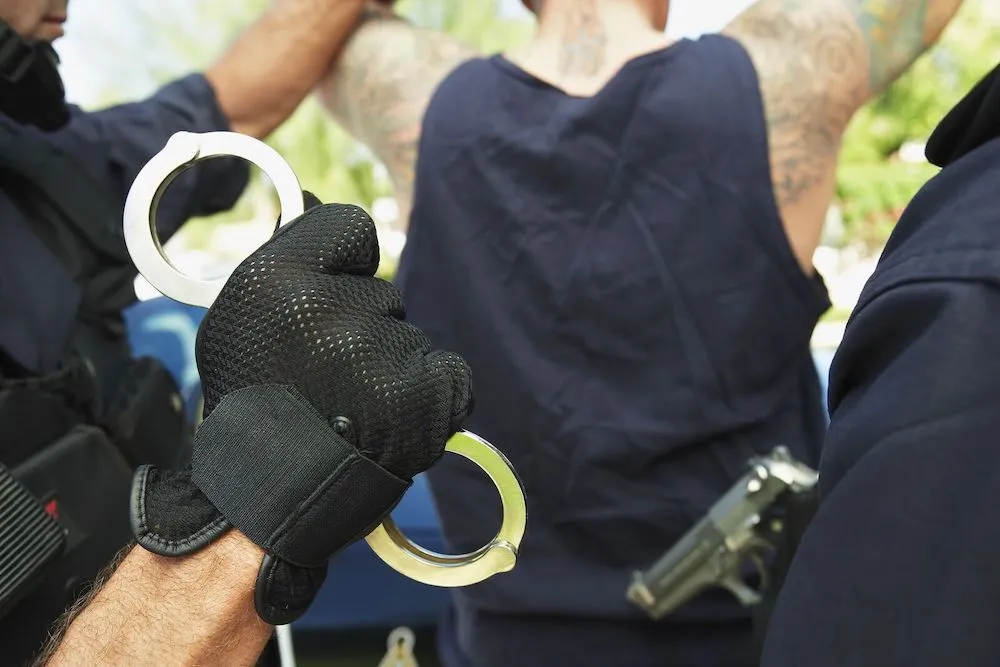Felony charges in Florida cover a wide range of criminal offenses, from drug-related crimes to violent acts. Being charged with a felony can be overwhelming, and understanding the types of charges, the legal process, and your options is essential. Working with an experienced criminal defense lawyer in Florida can help you protect your rights and ensure your case is handled effectively.
This guide breaks down the most common felony charges in Florida, explains how they are categorized, and provides guidance on seeking professional legal support.

Get Expert Legal Support for Felony Charges in Florida
Facing a felony charge in Florida can feel overwhelming, but you don’t have to face it alone. A skilled criminal defense lawyer can help you understand your rights, evaluate your options, and provide guidance throughout every stage of your case.
Address: 130 S Indian River Dr Suite 202, Office 218, Fort Pierce, FL 34950, United States
Call: 772-828-1143
Email: info@jordizaragoza.com
Understanding Felony Classifications in Florida
Florida classifies felonies into different levels based on the severity of the crime:
- Capital Felonies – These are the most serious offenses and carry the most severe legal consequences.
- Life Felonies – Crimes punishable by life imprisonment, typically involving violent acts.
- First-Degree Felonies – Serious crimes that may involve significant harm or risk.
- Second-Degree Felonies – Less severe than first-degree but still carry significant penalties.
- Third-Degree Felonies – The least severe felony category, often involving non-violent offenses.
Understanding the classification is important because it determines the seriousness of felony charges in Florida and guides legal strategy. An experienced criminal defense lawyer in Florida can help explain how classifications affect your case.
Common Types of Felony Charges
1. Drug Crimes
Florida takes drug offenses seriously, with charges ranging from possession to trafficking. Felony drug charges can include:
- Possession with intent to distribute
- Trafficking controlled substances
- Manufacturing illegal drugs
Each case varies depending on the type and quantity of the substance involved. Working with a skilled defense attorney ensures evidence is properly reviewed and your rights are protected.
2. Violent Crimes
Felonies involving violence are treated with heightened scrutiny. Common violent felony charges include:
- Assault with a deadly weapon
- Aggravated battery
- Armed robbery
- Domestic violence-related felonies
An experienced lawyer can investigate the circumstances surrounding the alleged incident, identify evidence supporting your defense, and guide you through the legal process.
3. Property Crimes
Felony property crimes typically involve significant theft, damage, or fraud. Examples include:
- Burglary of a dwelling or commercial property
- Grand theft of valuable property
- Arson and property destruction
While property crimes may not involve direct physical harm, they carry serious long-term consequences. Legal guidance is crucial for mounting an effective defense.
4. White-Collar Crimes
Felony charges can also extend to non-violent, financially motivated crimes. White-collar felonies may include:
- Fraud and embezzlement
- Identity theft
- Money laundering
- Tax-related offenses
These cases often require detailed investigation and a strategic legal approach. An experienced criminal defense lawyer in Florida can help ensure your case is handled with precision.
5. Juvenile Felonies
Minors can also face felony charges under Florida law. Juvenile offenses are often handled differently than adult cases, focusing on rehabilitation rather than punishment. Felony charges for minors can include:
- Theft or burglary
- Drug possession or distribution
- Violent acts
Parents and guardians should seek immediate legal support to protect a minor’s rights and future.
Why Legal Representation Matters
Navigating felony charges without legal assistance can be risky. An experienced criminal defense lawyer in Florida provides:
- In-depth knowledge of Florida criminal law
- Guidance on evidence review and case strategy
- Protection of your legal rights throughout the process
- Advocacy in negotiations with prosecutors
Even if you are unsure about the next steps, consulting a lawyer early helps preserve options and strengthens your defense.
Steps to Take if Facing Felony Charges
- Seek Professional Legal Guidance Immediately – Don’t attempt to navigate the process alone.
- Document Everything – Keep records of all interactions related to the case.
- Avoid Self-Incrimination – Be careful about what you say to law enforcement, insurance companies, or others.
- Understand Your Rights – Knowing your rights in Florida is critical to safeguarding your defense.
These steps, combined with professional legal support, can improve your ability to handle a felony charge effectively.
Contact an Experienced Criminal Defense Lawyer in Florida
Facing a felony charge can be complex and intimidating. You don’t have to navigate it alone. An experienced criminal defense lawyer in Florida can help you understand your options, protect your rights, and guide you through every stage of your case.
Address: 130 S Indian River Dr Suite 202, Office 218, Fort Pierce, FL 34950, United States
Call: 772-828-1143
Email: info@jordizaragoza.com
FAQs
1. What is the difference between a first-degree and third-degree felony in Florida?
First-degree felonies are more serious and typically involve greater harm or risk, while third-degree felonies are less severe but still carry significant legal consequences.
2. Can juveniles be charged with felonies in Florida?
Yes, minors can face felony charges, but cases often focus on rehabilitation and may follow different legal procedures than adult cases.
3. How can a criminal defense lawyer help with felony charges?
A skilled lawyer reviews the evidence, identifies potential defenses, ensures your rights are protected, and guides you through the legal process for the best possible outcome.
